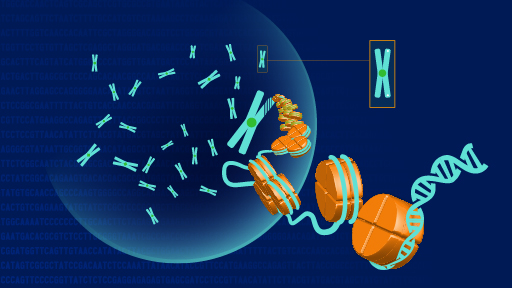Study of Chromosomal Disorders: Down Syndrome and Turner Syndrome – Assignment Help

Chromosomal disorders are genetic conditions caused by abnormalities in chromosome number or structure. Among the most well-known are Down syndrome and Turner syndrome, both of which provide insight into how small genetic variations can significantly impact development, growth, and health. Understanding these disorders is crucial for students pursuing biology, genetics, or medical-related fields. This article delves into the causes, symptoms, and diagnosis of Down syndrome and Turner syndrome while offering guidance on getting assignment help to tackle these topics effectively.
What Are Chromosomal Disorders?
Chromosomal disorders occur when chromosomes—structures carrying genes—do not distribute or function correctly during cell division. Normally, humans have 46 chromosomes (23 pairs), with each parent contributing one set. However, errors like nondisjunction during meiosis can lead to abnormal chromosome numbers, resulting in genetic conditions.
Chromosomal disorders are classified into two main types:
- Numerical abnormalities: Changes in chromosome number (e.g., extra or missing chromosomes).
- Structural abnormalities: Alterations in chromosome shape, deletions, or rearrangements.
Let’s explore two common numerical chromosomal disorders: Down syndrome and Turner syndrome.
Down Syndrome: A Trisomy Disorder
1. What is Down Syndrome?
Down syndrome occurs due to the presence of an extra copy of chromosome 21. This condition is also referred to as trisomy 21 because affected individuals have 47 chromosomes instead of 46. It is among the most common genetic disorders, affecting about 1 in 700 births globally.
2. Causes and Risk Factors
Down syndrome is primarily caused by nondisjunction, where chromosome pairs fail to separate during meiosis. As a result, the fertilized egg receives an extra chromosome 21. Maternal age is a significant risk factor, with older women having a higher chance of giving birth to a child with Down syndrome.
3. Symptoms of Down Syndrome
Individuals with Down syndrome may exhibit:
- Distinct facial features: Flat facial profile, slanted eyes, and a small nose.
- Developmental delays: Cognitive disabilities, speech challenges, and delayed motor skills.
- Health complications: Congenital heart defects, hearing loss, and thyroid issues.
- Learning difficulties: Although children with Down syndrome can learn, they often require specialized education.
4. Diagnosis of Down Syndrome
- Prenatal screening: Blood tests and ultrasounds can detect markers for Down syndrome during pregnancy.
- Diagnostic tests: Amniocentesis or chorionic villus sampling (CVS) analyzes fetal chromosomes to confirm the condition.
- Postnatal diagnosis: Physical symptoms are often apparent at birth, followed by chromosomal analysis for confirmation.
Turner Syndrome: A Monosomy Disorder
1. What is Turner Syndrome?
Turner syndrome occurs when one of the X chromosomes is missing or partially absent in females, leaving them with 45 chromosomes instead of the usual 46. This condition only affects biological females, with an incidence of approximately 1 in 2,500 live female births.
2. Causes and Risk Factors
Turner syndrome is caused by monosomy X, where one X chromosome fails to develop correctly. Unlike Down syndrome, Turner syndrome is not linked to parental age or environmental factors. The error can occur during meiosis or early embryonic development.
3. Symptoms of Turner Syndrome
Girls with Turner syndrome may display:
- Short stature: Growth hormone deficiency leads to below-average height.
- Delayed puberty: Ovarian dysfunction results in underdeveloped secondary sexual characteristics.
- Infertility: Most women with Turner syndrome cannot conceive naturally.
- Health complications: Heart defects, high blood pressure, and kidney abnormalities.
- Learning challenges: Difficulties with spatial reasoning and mathematics.
4. Diagnosis of Turner Syndrome
- Prenatal diagnosis: Non-invasive screening tests (like cell-free DNA testing) or amniocentesis can detect Turner syndrome.
- Physical examination: Doctors may suspect the condition based on short stature and delayed puberty.
- Karyotype analysis: Chromosome testing confirms the presence of a missing or altered X chromosome.
Why Study Chromosomal Disorders?
The study of chromosomal disorders such as Down syndrome and Turner syndrome offers essential insights into:
- Genetics and inheritance patterns: Understanding nondisjunction and how it impacts genetic transmission.
- The role of chromosomes in development: Exploring how chromosome abnormalities lead to distinct traits and health conditions.
- Treatment and management approaches: Learning how medical interventions (e.g., hormone therapy or early education programs) improve outcomes for affected individuals.
- Ethical considerations: Gaining awareness of the complexities involved in prenatal screening, diagnosis, and counseling.
These topics are critical for students pursuing careers in genetics, medicine, psychology, and education.
How Assignment Help Can Support You
Completing assignments on chromosomal disorders like Down syndrome and Turner syndrome can be challenging for students. These topics require an understanding of genetic mechanisms, clinical symptoms, and diagnostic procedures. Some common challenges include:
- Grasping complex genetic concepts such as nondisjunction and karyotype analysis.
- Writing detailed case studies on how these disorders impact individuals and families.
- Interpreting scientific data from research studies on chromosomal disorders.
Get Professional Assignment Help at EssayResearchScholar
If you’re struggling with assignments on chromosomal disorders, EssayResearchScholar.com offers expert guidance tailored to your needs. Here’s how we can assist:
- In-depth explanations: We provide step-by-step assistance on the genetic basis of chromosomal disorders.
- Customized assignments: Our experts create personalized essays, research papers, or presentations on topics like Down syndrome and Turner syndrome.
- Editing and proofreading: We ensure your work is accurate, well-organized, and free from grammatical errors.
- Timely delivery: We meet even the tightest deadlines so you never miss a submission.
- 24/7 support: Get help whenever you need it, with around-the-clock customer service.
With professional assignment help, you’ll gain a deeper understanding of chromosomal disorders and improve your academic performance.
Conclusion
Chromosomal disorders such as Down syndrome and Turner syndrome offer invaluable insights into how changes in chromosome number affect human development and health. Through the study of these conditions, students can better understand the role of chromosomes in genetics, medical diagnosis, and treatment.
If you need help with assignments on these topics, EssayResearchScholar.com provides affordable, reliable support. Our team of experts is ready to assist with everything from research to essay writing, helping you succeed in your academic journey.
